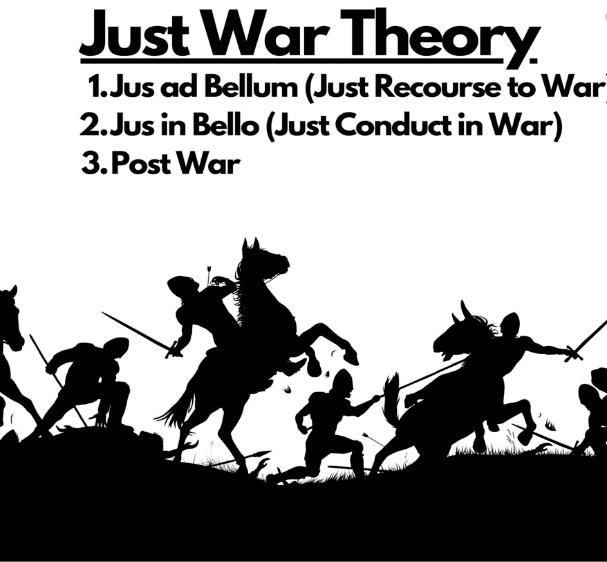Ethics in International Relations
International ethics is a set of universal values that govern the actions and behaviours of nation-states. These include the protection of human rights, the prohibition of genocide, the prohibition of attacks on civilians during the war, etc.
In International Relations, the state is called an Actor. Hence,
- All decisions should protect and further the national interests of the State (Machiavellian Ethics), but
- It should also be seen as ethical.
Examples where International Ethics played a role.
- Sri Lanka objected to the Nuclear Plant at Kudankulam as it is situated on the coast. India took their concerns to notice.
- India and China were initially against any quota on them in Climate Change negotiations. But, later, they accepted the quota for the sake of humanity and the people living in small island nations.
However, world powers try to mould international governance in a way that protects their interests. For instance, the US at the World Bank, World Trade Organisation, etc.
It advises the international community on how to address major problems. For instance, the UNCLOS has aided in distributing maritime resources fairly among all nations.
The scope and depth of ethical obligations between states in the age of globalization are the focus of the area of international relations theory known as international ethics. How governments and other entities treat other nations and international ethics explains how inhabitants are explained by international ethics. People who are well-versed in good and evil, as well as rights and wrongs, can take place in the global arena.
Some sources of International Ethics are:
- Three perspectives of ethics in International Relations.
- Importance of International Ethics
- Limit of Sovereignty
- What is the limit for non-intervention by the international community?
- Ethical Issues Around Nuclear Weapons
- Benefits of Nuclear weapons
- Arguments Against Nukes
- Asylum
- Conclusion
- FAQs related to Ethics in International Relations
- UN Declaration of Human Rights
- Geneva Convention for Humanitarian Treatment in War
- Common but differentiated responsibility under the Paris Climate Deal of UNFCCC
Three perspectives of ethics in International Relations.
When it comes to ethics in international relations, there are three dominant perspectives: realism, liberalism, and constructivism.
Realistic Perspective
- The first is the realistic perspective, which suggests that a country’s national interest should be at the centre of its decision-making process.
- There is anarchy in international relations, and there is no world government. Hence, the state is the most important actor.
- Peace is created by DETERRENCE. For instance, Proponents of the Realistic Perspective are of the view that the Third World War didn’t happen because of Nuclear Weapons).
Liberal Perspective
- The second is a liberal perspective that promotes freedom, democracy, the rule of law, civil rights, and human rights.
- The state is an important factor, but cooperation between states is possible. For instance, Mutual Cooperation in the form of WTO, UN, IMF, World Bank, UNSC, etc.
- Peace & Stability are established via Cooperation.
Ideal/Cosmopolitan Perspective
- They see the world as a single entity.
- Rather than citizens, all are humans. Hence, they are proponents of the Universal Brotherhood.
Importance of International Ethics
- Legitimacy: Ethics grants and withdraws legitimacy. The mitigation and cessation of unjust practices ultimately come from the assertion of core values. The end of slavery began with various revolutions and rebellions – yet the source of its ultimate demise was its loss of legitimacy.
- Rights and Responsibilities: The Universal Declaration of Human Rights, along with the United Nations Charter, the Geneva Conventions, and other international agreements like the Refugee Convention, is among the most well-known attempts to create a broad consensus on the elements of human rights.
- Peace and Harmony: Ethics aims at a “Peaceful World”, “Respect for All”, & “Equality” while forming international organizations, declarations & forums. For example, The demand for equality in IMF & UNO shows the demand for adhering to ethics in a way.
- Solidarity: Natural disasters and refugee crises require a more compassionate view of the global community. These are not isolated events; rather, it is the duty of every global citizen to help in times of crisis. E.g., Aid during natural disasters (Nepal earthquake)
- Fairness: Fairness addresses normative standards for appropriate contribution, equal regard, and just desert. For example, Amartya Sen’s “capabilities approach”.
- Responsibility Sharing: International environmental initiatives to combat issues like ozone depletion, global warming, etc., which require measures from many states that are important contributors to forces causing such problems, are guided by international ethics. For example, the Common But Differentiated Responsibility (CBDR) principle in the Paris Climate Deal for fighting climate change is the result of ethics in international affairs.
Limit of Sovereignty
Important ethical concerns in International Ethics include the limit of Sovereignty. When large-scale Ethnic cleansing & Genocide is taking place (e.g. in South Sudan or Myanmar), can a country protect its actions in the garb of sovereignty?
- Responsibility to Protect: It means Nations have sovereignty but are subject to Human Rights. If human rights are violated, then the International Community can unilaterally act against that nation.
What is the limit for non-intervention by the international community?
It states that Nations have sovereignty but are subject to Human Rights. If human rights are violated, then the International Community can unilaterally act against that nation.
- The idea was invented in the aftermath of the Nazi execution of the Jews to protect such crimes from happening, which ‘shocked the conscience of mankind’.
- For this, there is an initiative of the UN called the Responsibility to Protect (R2P) Initiative.
However, weaker and smaller states fear that the garb of responsibility for protecting developed nations will undermine their sovereignty.
Just War Theory
What is a valid justification to start the war? If war has started, which types of actions are justified during the war, and what steps should the country take after the war?
Components of Just War Theory
- Jus ad Bellum (just recourse to war)
- Jus in Bello (Just conduct in war)
- Post-war
Principles of Jus ad Bellum (Just Recourse to War)
- Last resort: All non-violent options must have been exhausted
- Just cause: The purpose of war is to redress a wrong
- Legitimate authority: The lawfully constituted government of a sovereign state can declare war rather than a private individual or group.
- Right intention: War must be prosecuted on morally acceptable aims rather than revenge
- Reasonable prospect of success: War should not be fought in a hopeless cause
- Proportionality: Any response to an attack should be measured and proportionate.
Principles of Jus in Bello (Just Conduct in War)
- Discrimination: Force must be directed at military targets only because civilians or non-combatants are innocent.
- Proportionality: Force should be proportional.
- Humanity: Force must not be directed ever against enemy personnel if they are captured, wounded or under control (prisoners of war).
Post War
- Reconstruction: Post-war reconstruction should also be done.
- Reconciliation: There should be efforts of reconciliation after the war is over.
It should be noted that the theory is not intended to justify wars but to prevent them by showing that going to war except in certain limited circumstances is wrong and thus motivates states to find other ways of resolving conflicts. Similarly, Mahabharata outlines the principles and contours of the conduct of a just war. Some rules propounded were that armies were allowed to collect bodies, personnel could meet for negotiations, etc.
Ethical Issues Around Nuclear Weapons
Nuclear weapons have the potential to destroy the entire ecosystem of the planet. However, a handful of states insist that these weapons provide unique security benefits but reserve the sole right to possess them.
Hence, the possession of nuclear weapons leads to numerous moral and ethical dilemmas.
Benefits of Nuclear weapons
- The fact that there has not been a war between nuclear-armed states due to fear of mutually assured destruction implies that deterrence has prevented the aggravation of conflicts. For example, the USSR and the US didn’t fight during the Cold War.
- It has indirectly saved millions of lives as conventional wars have not happened. Pakistan and India are less likely to attack each other because both are nuclear states.
- Nuclear statesmanship: Possession of nuclear weapons engenders a sense of responsibility and a strong bias against adventurism.
Arguments Against Nukes
- The first question is whether nuclear weapons are moral or immoral in themselves. According to ethical theories, since morality cannot be attributed to non-human things, hence nuclear weapons in themselves are neither evil nor good. The question of Morality comes when it goes into the hands of the person who will use it. Till Nuclear Weapons are available, there is always a possibility that Terrorists can get hold of them and use them.
- According to proponents of nuclear weapons, these weapons create deterrence and stabilize the world order.
- From the utilitarian perspective, while nuclear weapons give a sense of security to the nations that possess them, they instil fear of destruction in the minds of billions. Even the citizens of nuclear-armed states cannot be sure of their safety. Hence, on the touchstone of ‘maximum good to maximum people, ‘ nuclear weapons falter.
- Similarly, from a deontological perspective, it believes that the means to achieve peace should also be pure. The means to avoid war should not be fear of destruction but values of humanity, peaceful co-existence, etc.
- Another dimension could be whether the money used for the production of nuclear weapons can be put to better use. Spending on social upliftment is more moral than spending on weapons.
- The possibility that nuclear-armed states may go rogue, collapse, or fail to prevent their arsenal from falling into the hands of terrorists cannot be ignored.
- Hence, it can be concluded that although the deterrent effect of nuclear weapons worked during the bipolar ‘first nuclear age’, it is far less reliable in the less stable, multi-polar circumstances of the ‘second nuclear age’.
Asylum
The response of countries to asylum seekers has been xenophobic. Afghanis, Tunisians, Libyans, Syrians, Rohingyas, etc.
Arguments Against Giving Asylum
- It leads to draining the (scarce) economic resources of the country.
- Giving asylum leads to fear of job loss.
- It also leads to the entry of extremist elements into the country. For instance, the Indian government fears that a large number of Rohingya coming to India makes India prone to Islamic extremism and terrorism.
- Rebirth of Extreme Right-Wingers Playing on Xenophobia. For example, far-right political parties such as Alternative for Germany (AfD) in Germany and National Rally in France are gaining ground playing on this card.

Arguments in Favour of Giving Asylum
- Every human being has an equal right to the resources of the earth.
- The principle of non-refoulment (to which a large number of countries except India are signatories) states that no one should be returned to a country where they would face torture, cruelty or any other irreparable harm.
Conclusion
It is crucial to have openness and accountability in place and sound governance procedures from the start. Working with partner organizations can help maintain transparency and accountability.
Partnerships with those who have experienced poverty will be advantageous since they may give feedback on whether programs are effective or detrimental. The finest projects will offer chances for education, skill development, employment, and income generation.
| Previous Year Questions |
|








